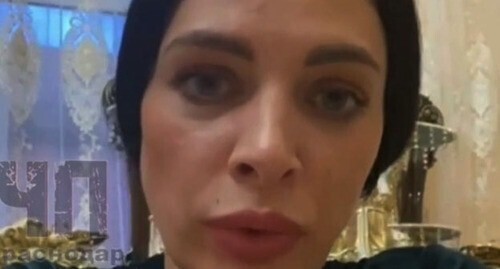Abduction of Maria Smelaya reminds of legal vulnerability of women in shelters
The employees of the shelter from which Maria Smelaya was abducted decided not to apply to the police, but moved their clients to a safe place. Human rights defenders have emphasized the need of legal mechanisms and tools to protect shelter clients.
The "Caucasian Knot" has reported that on May 9, the human rights project "Caucasus without Mother" reported that Maria Smelaya, a Krasnodar resident, who had complained of violence from her husband, a native of Chechnya, stopped communicating after her husband and his accomplices abducted her with a child from a shelter. On May 11, a message was posted on Maria's behalf claiming that information about her husband's violence was slander.
On May 7, the 33-year-old Maria Smelaya was placed in a shelter for women-victims of domestic violence located outside the Krasnodar Territory. Earlier, she asked human rights defenders to protect her from her husband, who, according to her story, used to beat her up and threatened her with death when she was pregnant with their son.
Maria Smelaya is really in Krasnodar, and not in Chechnya, Lydia Mikhalchenko, the author of the project "Caucasus without Mother", believes.
"In the video, she says that we had abducted, zombified her, and so on, but all these are actually her husband's words, who is a native of Chechnya. She, in fact, is in her husband's captivity and is forced to say what he commands. As we noticed, her face is a little swollen," Ms Mikhalchenko has stated.
According to her story, Smelaya's husband beat up the shelter's nanny and threatened its employees. She believes that in this situation, an application to the police from strangers will yield no results.
The situation with Maria and her abduction from the shelter is typical, says Saida Sirazhudinova, the president of the Centre for Studying Contemporary Global Issues and Regional Problems entitled "Caucasus. World. Development".
"A woman-victim of violence cannot resist, while shelter staff is unable to resist force," she has noted.
Abductions of women from shelters are becoming a sort of norm, said Aida Mirmaksumova, the head of the "Fathers and Daughters" project. According to her version, the legal status of the woman to whom the shelter has provided asylum is not protected in any way. If the police react, it fails to bring much fruit, she believes.
Alexandra Miroshnichenko, an activist of the SK SOS Crisis Group*, has confirmed that Maria's story is "pretty typical." "The women-escapees are often forcibly returned home by their husbands or parents. In recent years, the methods of return have become more sophisticated: fugitives are often reported to the police and returned home under the pretext of fabricated criminal cases," she has added.
*Included by the Russian Ministry of Justice (MoJ) into the register of foreign agents.
This article was originally published on the Russian page of 24/7 Internet agency ‘Caucasian Knot’ on May 14, 2024 at 10:45 pm MSK. To access the full text of the article, click here.
Source: СK correspondent






![Tumso Abdurakhmanov. Screenshot from video posted by Abu-Saddam Shishani [LIVE] http://www.youtube.com/watch?v=mIR3s7AB0Uw Tumso Abdurakhmanov. Screenshot from video posted by Abu-Saddam Shishani [LIVE] http://www.youtube.com/watch?v=mIR3s7AB0Uw](/system/uploads/article_image/image/0001/18460/main_image_Tumso.jpg)